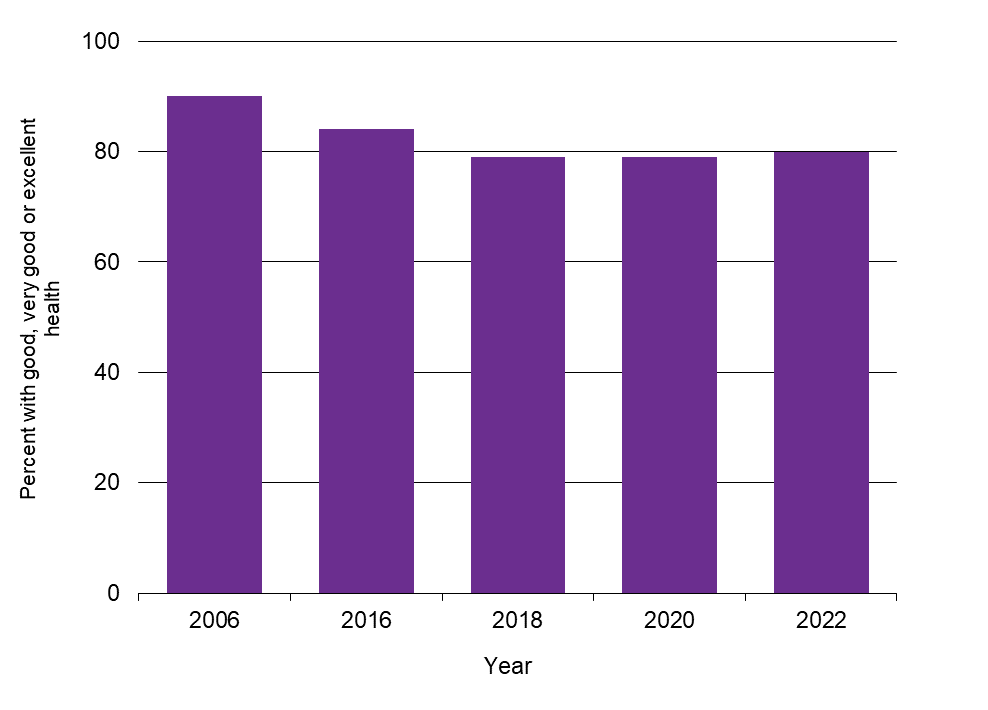Perceived health

 PERCEIVED HEALTH
PERCEIVED HEALTH
| WORSENING TREND |
Perceived levels of overall health for people living in the Waikato region are lower in 2022 compared with 2006.
This indicator is people’s self-rated general health status in the Waikato region according to the Quality of Life Survey results.
Why is this indicator important?
Self-reported health status is a key measure of subjective wellbeing and has been found to be linked to actual health outcomes. Measuring people’s perceptions of their health provides us with useful information which can be included with other measures to help us to plan for current and future support systems and other resources in our region.
Perceived health

| Year | Per cent with good, very good or excellent health |
| 2006 | 90 |
| 2016 | 84 |
| 2018 | 79 |
| 2020 | 79 |
| 2022 | 80 |
What is this indicator telling us?
- Compared to 2006, Waikato regional survey respondents in 2022 were less likely to rate their overall health positively (80% compared to 90% in 2006).
- Between the most recent 2020 and 2022 surveys, the percentage of respondents who rated their mental health positively declined by a statistically significant amount, from 75% to 70%. This likely reflects Covid-19 impacts.
- Across the Waikato region in 2022:
- The percentage of people who rated their overall health positively ranged from 73% for Hauraki district respondents up to 89% for Thames-Coromandel district respondents.
- Respondents who identified with the New Zealand European/ Other ethnic group were more likely to rate their overall health positively (82%); and respondents who identified with the Māori ethnic group were less likely to rate their overall health positively (71%).
- Results from the NZ Health Survey for the 2017-20 period show around 86% of respondents from with the Waikato DHB area considered their general health status to be good, very good or excellent, similar to the national average 87%.
- According to Organisation for Economic Co-operation and Development (OECD) statistics, when asked ‘How is your health in general?’, 86% of people in New Zealand reported to be in good health, much more than the OECD average of 68% and one of the highest scores across the OECD.
DATA SOURCE AND SUPPORTING INFORMATION
Indicator is the percentage of respondents who report their self-rated general health status to be good, very good or excellent. Data are from the Quality of Life Survey.
Update details: Waikato regional results are available for 2006, 2016, 2018, 2020 and 2022.
Customised data request requirements: Quality of Life data.
DATA AVAILABILITY – OTHER THAN WAIKATO REGION:
Territorial Authority (TA) disaggregation: Yes
Other regions: Yes
New Zealand: No (from 2022 in the 8-cities questionnaire, physical and mental health are measured but not 'overall health').
Other countries/ Organisation for Economic Co-operation and Development (OECD): secondary statistics from OECD Wellbeing Report: Health – Key findings.




To ask for help or report a problem, contact us
Tell us how we can improve the information on this page. (optional)